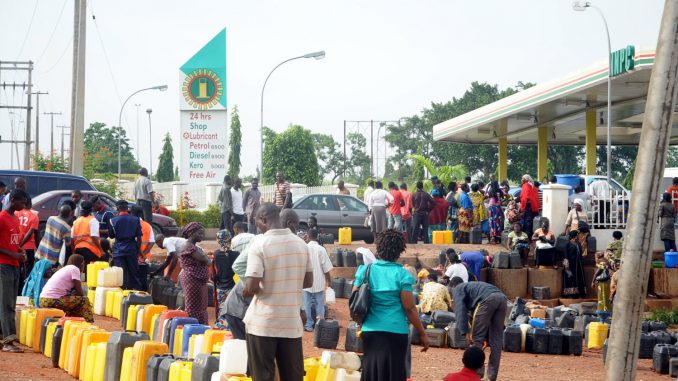
The Nigeria Labour Congress (NLC) has condemned the advice by the World Bank to the federal government to increase petrol prices to N750 per litre.
Joe Ajaero, NLC president, said this on Friday in Abuja in a statement titled, “World Bank’s N750 per litre for premium motor spirit is a threat to Nigerians economy”.
It would be recalled that the World Bank lead economist for Nigeria, Alex Sienaert, offered the advice recently during a presentation of the Nigeria Development Update, Dec. 2023 edition.
The economist noted that the federal government may still be paying fuel subsidy, considering that fuel prices are currently not cost-reflective in the country.
He also noted that based on the official foreign exchange rate, fuel should cost N750 per litre.
But Mr Ajaero said, “We vehemently reject the recent advice by the World Bank, which has asked the Nigerian government to increase petrol prices to N750 per litre.
“It is truly a shame that the World Bank has really shown itself to be an enemy of the Nigerian nation.
“Its continued grandstanding and generation of anti-poor policies and programmes have destabilised many countries of the South, especially nations within the sub-Saharan region,” he said.
He noted that the difficulties and suffering created by the last hike in the price of petrol were a product of the advice of the World Bank and its sister institution.
Mr Ajaero urged the government not to allow foreign entities to dictate economic policies that were detrimental to the welfare of its citizens.
“It is imperative that our leaders look inwards, tapping into the vast resources and human potential within our nation.
“This would address challenges and formulate policies that genuinely uplift the standard of living for all Nigerians.
“We assert that it is not only impractical but truly immoral for the World Bank to persistently advocate for policies that endanger the lives and livelihoods of citizens, imperilling our nation,” he said.
He added it is crucial for the Nigerian government to prioritise the welfare of its people over external pressures.
He called on the government to resist the temptation to implement policies that cater for the interest of international bodies, even at the expense of the well-being of its citizens.
The minimum wage in Nigeria for a privileged few is N30,000 (about US$ 30), while the minimum wage in the U.S. is equivalent to N1.5 million.
“If you advocate for international prices, then it becomes commonsensical that you must advocate for international wages.
“Our local reality is that we cannot think of increasing the pump price of petrol any further as it is a product whose price is pivotal in determining the price of other items in the country,” he said.
